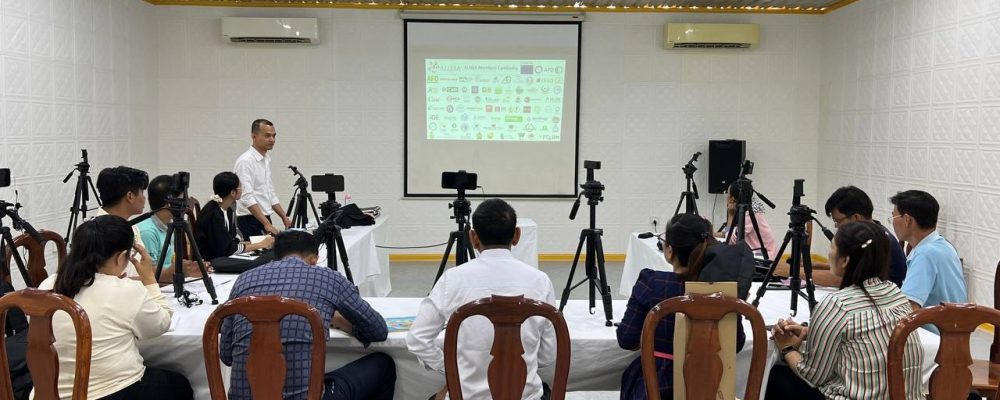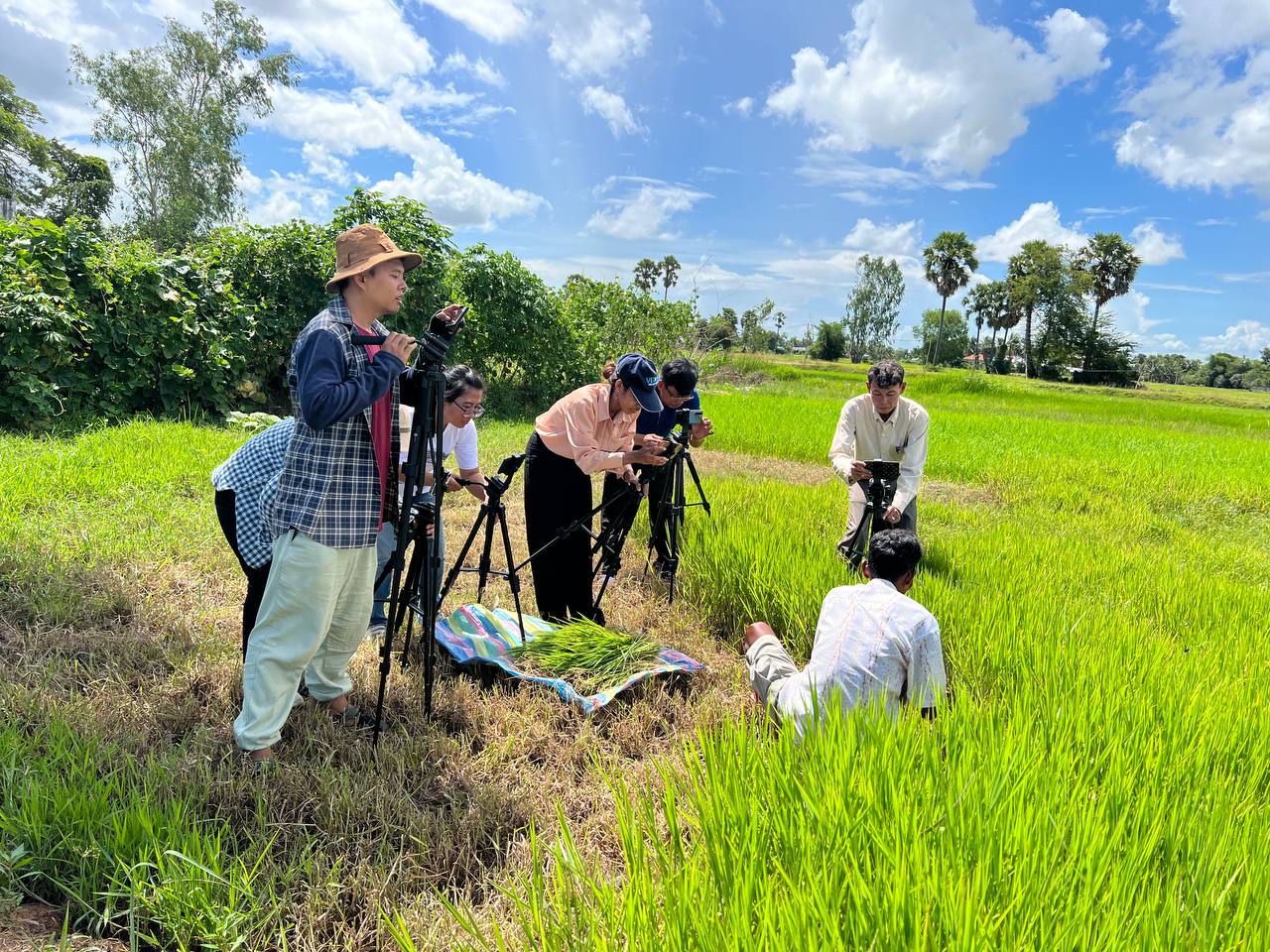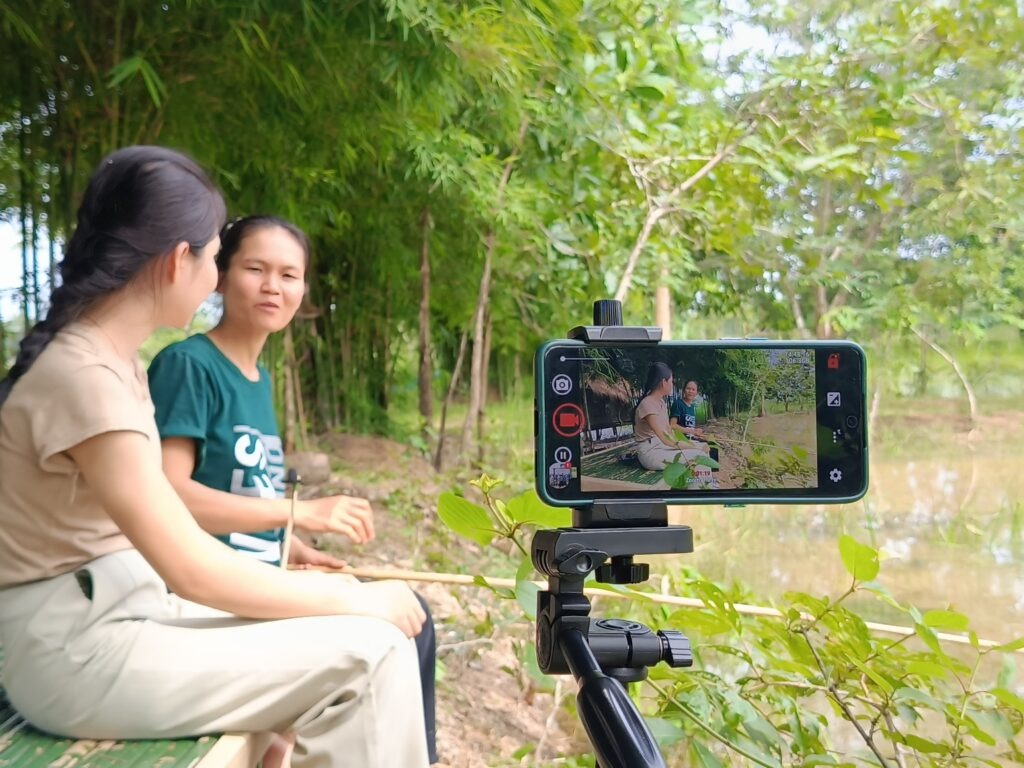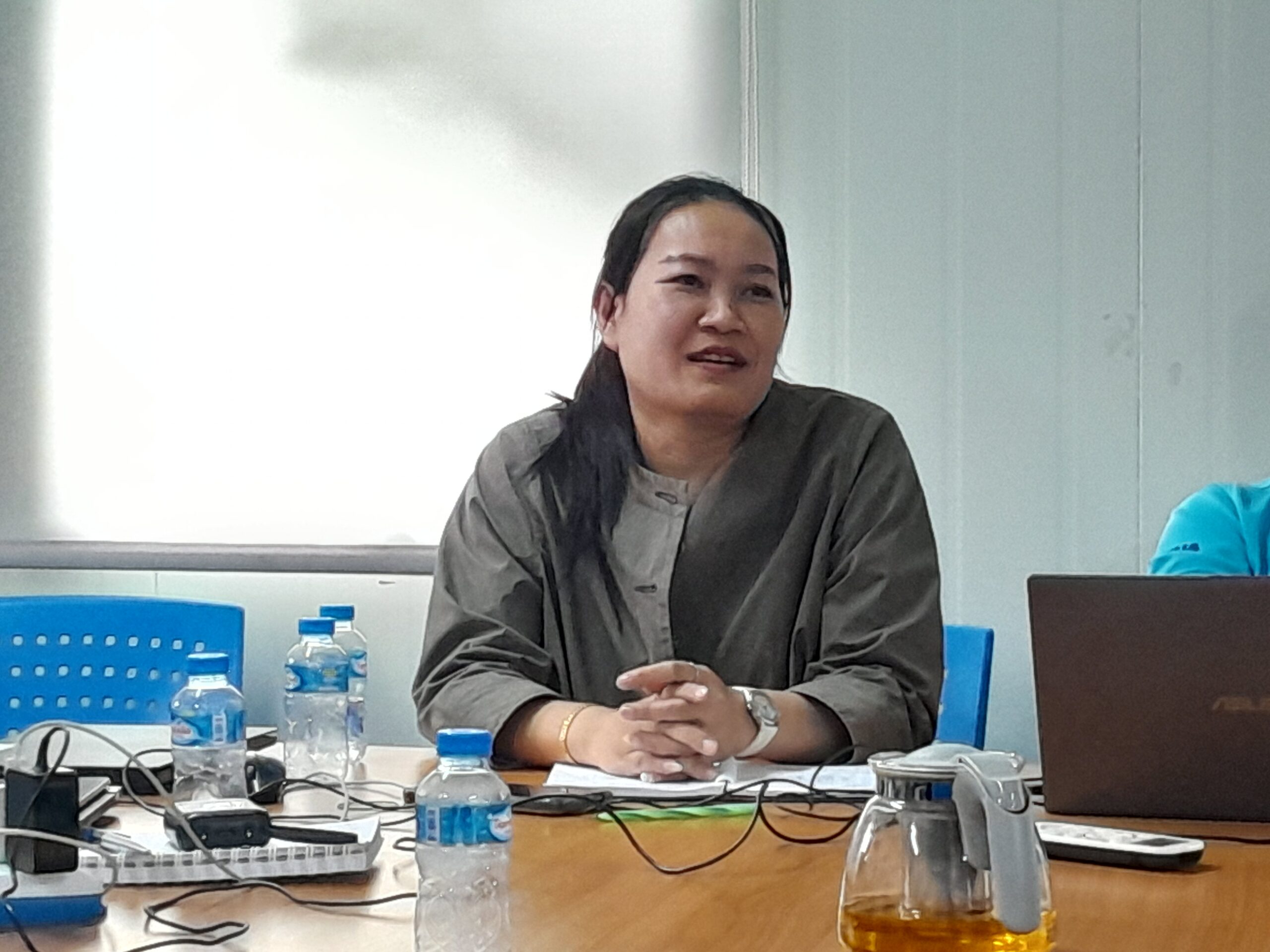The ALiSEA recently organized its second training on photo and video production in Laos and Cambodia. The training took place from August 8-10, 2023, in Vientiane, Laos, and Takeo province, Cambodia, and was attended by 20 participants from both countries.
This training is a continuation of the previous training “Smartphone Lens on Field to Promote Agroecology and Safe Food” which covered a wide range of topics related to photo and video production, including:
- Basic photography and videography techniques
- Storyboarding and composition
- Sound recording
- Editing and post-production
The participants also had the opportunity to go on field trips to practice their skills. In Laos, they visited the Phomalok integrated farming, while in Cambodia, they visited the integrated farming and chicken feed production supported by the Tramkak Union of Agriculture Cooperative.
The training was a great success and the participants learned a lot about photo and video production. They also had the opportunity to network with other professionals in the field.
I’m excited to learn video editing, even though I don’t have any prior experience. This is a great opportunity for me to develop new skills and apply them to my work.” – Nilaphay, a participant from Laos.
A participant from Cambodia said ”I’m really happy and thankful to ALiSEA that giving me a great opportunity to join this training session. Video production is useful for my work for sharing knowledge and information. The training session was well organized which allowed all participants to learn the theory of video filming, field practice, and editing. At the end of the training, I’m proud of myself, I can produce a nice video but I don’t have experience in smartphone video production before.” – Ms. Khoun Leakhana, a participant from Cambodia.
At the end of the training, participants were able to produce high-quality photo and video content that they could use in their work. They also gained a deeper understanding of the principles of photo and video production.
This training was supported by ASSET and Uni4coop (in Cambodia) and funded by the AFD, EU, FFEM, and Belgium Development.




